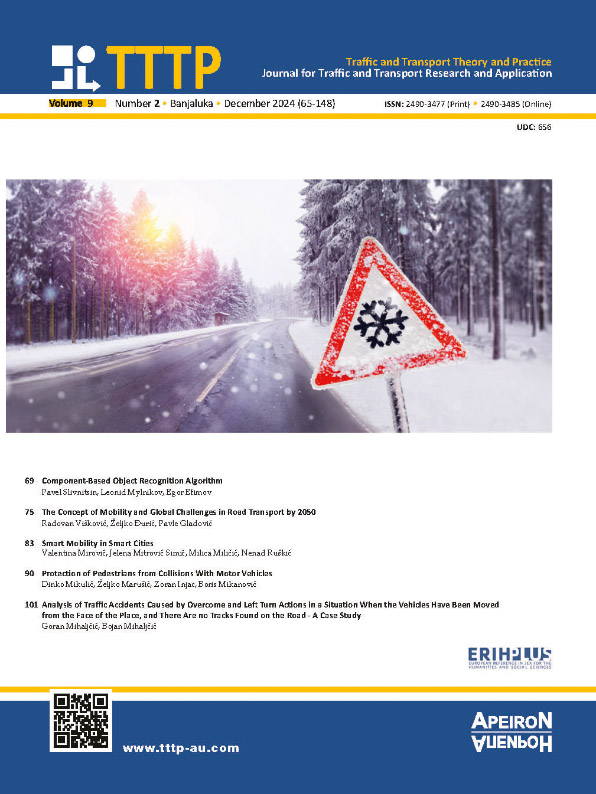Smart Mobility in Smart Cities
DOI:
https://doi.org/10.7251/JTTTP2402083MKeywords:
smart mobility, ITS, ICT, sustainability, cityAbstract
Contemporary urbanization trends today are defined in accordance with the principles of sustainable development, aiming to create a balance between the need for increased mobility, economic progress, and environmental protection in cities. The increase in the world’s population therefore requires a new way of optimizing human movement and the transportation of goods. The concept of smart mobility emerged alongside smart cities. Smart cities represent urban environments where information and communication technologies are applied to increase the efficiency of the urban system, leading to constant exchange of information with the population to improve the level of services available in the city and enhance the quality of people’s lives. The concept of smart mobility represents a system that collects and processes data in real-time using various information and communication technologies to optimize travel, ultimately leading to reduced traffic congestion, emissions of harmful gases, increased traffic safety, and improved efficiency and effectiveness of the transportation system. This paper will define the concepts of smart cities and smart mobility, and through examples of good practices, implemented solutions of the smart mobility concept in European cities will be presented. Furthermore, the paper will also address the challenges of implementing smart mobility systems that may arise due to the complexity of transportation systems in cities.
